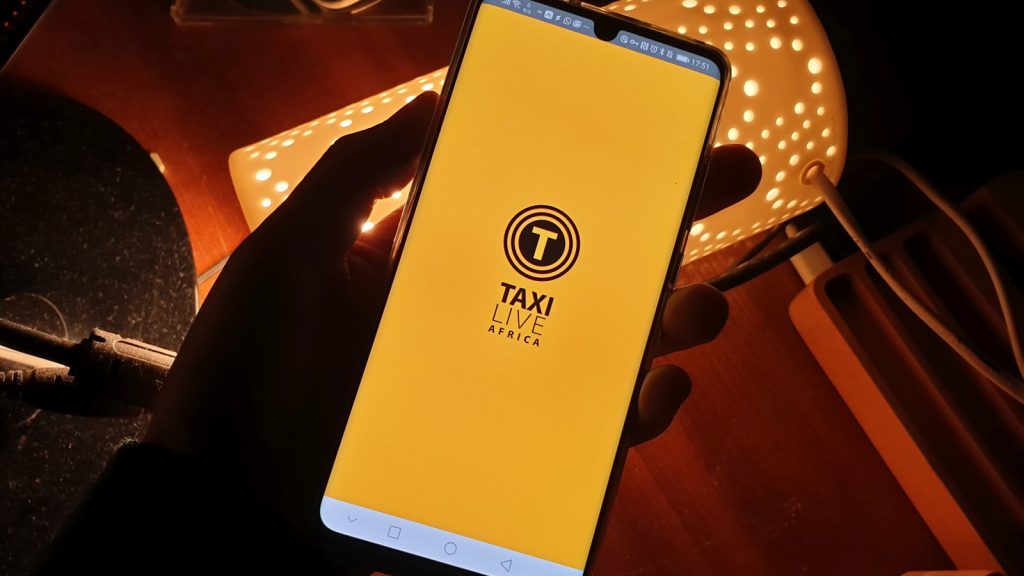With powerful hardware working together with an industry-leading camera system and intuitive AI experiences, everyday tasks have never been easier and faster
Taxi Live Africa brings Uber-like ehailing features to metered taxis

Since Uber arrived in South Africa in 2013, there’s been a fierce (and often violent) rivalry between those employing the technology and metered taxi drivers. But thanks to a new app developed in South Africa, this could be about to change.
Called Taxi Live Africa (TLA), the service and app lets metered taxi drivers perform trips requested by customers. Essentially, it’s bringing the Uber model to private taxis.
The reason for its development is clear: metered taxi operators need technology to compete in the evolving transportation industry, according to co-founder Luvuyo Ntshayi.
“Metered taxi operators have not had an app developed especially for them and their passengers,” he told Memeburn in an email.
“Ehailing has now become an established market but metered taxis were excluded from benefiting from this — in short, metered taxi drivers have been struggling to compete in a technology-led market.”
“Before TLA was established, I conducted numerous interviews with metered taxi operators in Durban, Johannesburg and Cape Town so that we gain real insights into their business challenges,” Nyashi continued.
“Not surprisingly, the one comment challenge among all of the people I met was that they had lost clients due to e-hailing. The gap in the market was evident and we believe that Taxi Live Africa will create a lot of opportunities not only for drivers but as we recruit more and more drivers, we will also be creating jobs within Taxi Live Africa as administrators in our offices.”
The service hasn’t had much time to mature though. The company was founded in 2017 by Ntshayi and business partner Soyiso Qotiwe, but only soft-launched in Durban in June 2019. Still, the company’s seen more than 700 registrations in the KwaZulu-Natal city thus far.
Taxi Live Africa vs Uber and Bolt
Aesthetically, the app’s spiffy, swift, and modern. Lots of yellow is employed in UI elements, while users can adjust payment option, view fare estimates, and take advantage of offers from the primary screen.
It also has the basic features you’d expect in an ehailing app. This includes an in-app emergency button, live chat support, the ability to schedule rides ahead of time, and a built-in police emergency number.
TLA does have an exhaustive list of registration criteria for drivers too, including the ownership of a PDP, car registration documents from 2014, police clearance, and ehailing operating documents. The company also wants drivers to be “willing to go for drivers training”.
Taxi Live Africa brings the Uber ehailing model to traditional metered taxis
Additionally, a rider/driver rating system is also present in the app, as well as a “Pool” option that allows up to six riders per trip.
Users can also pay for trips using cash or plastic, while trips are charged on a per kilometer and per minute basis. That’s R7 per km and 70c per minute, similar to Uber in coastal cities in South Africa. Base fare for TLA though is R5, but the cheapest trip will cost R20. Luggage is charged at R1 per piece. Unlike Uber and like Bolt, the app gives riders an approximate fare, rather than an exact number.
As for commission, Taxi Live Africa takes a 13% cut of drivers’ fare, notably low when compared to Uber’s 25%, and Bolt’s average of 15% per trip.
Ultimately, the service is similar to the apps and services its competing with, but that’s perhaps the point. Users of ehailing apps want to use a service that feels familiar. And as for giving metered taxi drivers a foot in the door of the ehailing market, Ntshayi believes that this service can be just that.
“Yes, we believe that will contribute to helping solve the problem,” he told Memeburn.
Plans to launch the service in Cape Town and Johannesburg in the “coming months” are afoot, and the company expects to see more than 10 000 drivers registering on the service within the next two years.
The app itself is available for both Android and iOS users.
Feature image: The Taxi Live Africa Android app, by Andy Walker/Memeburn


